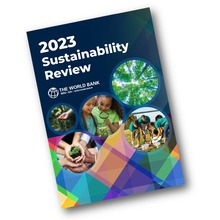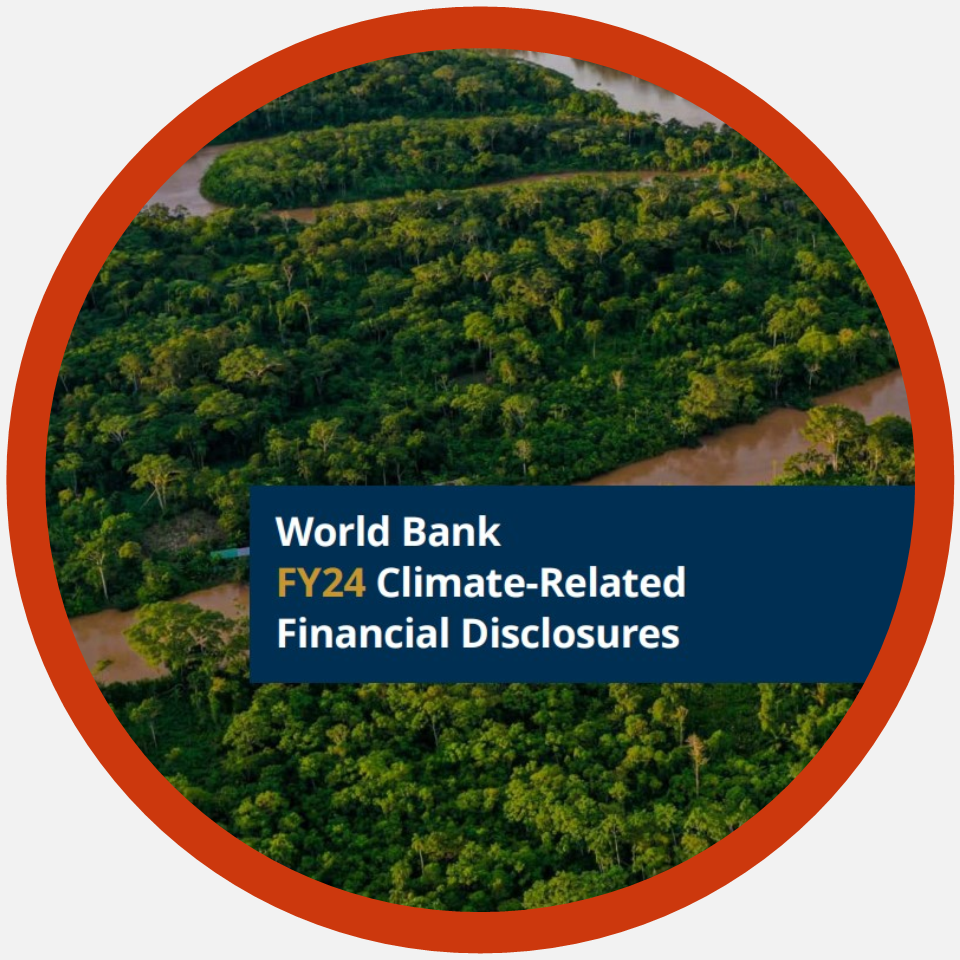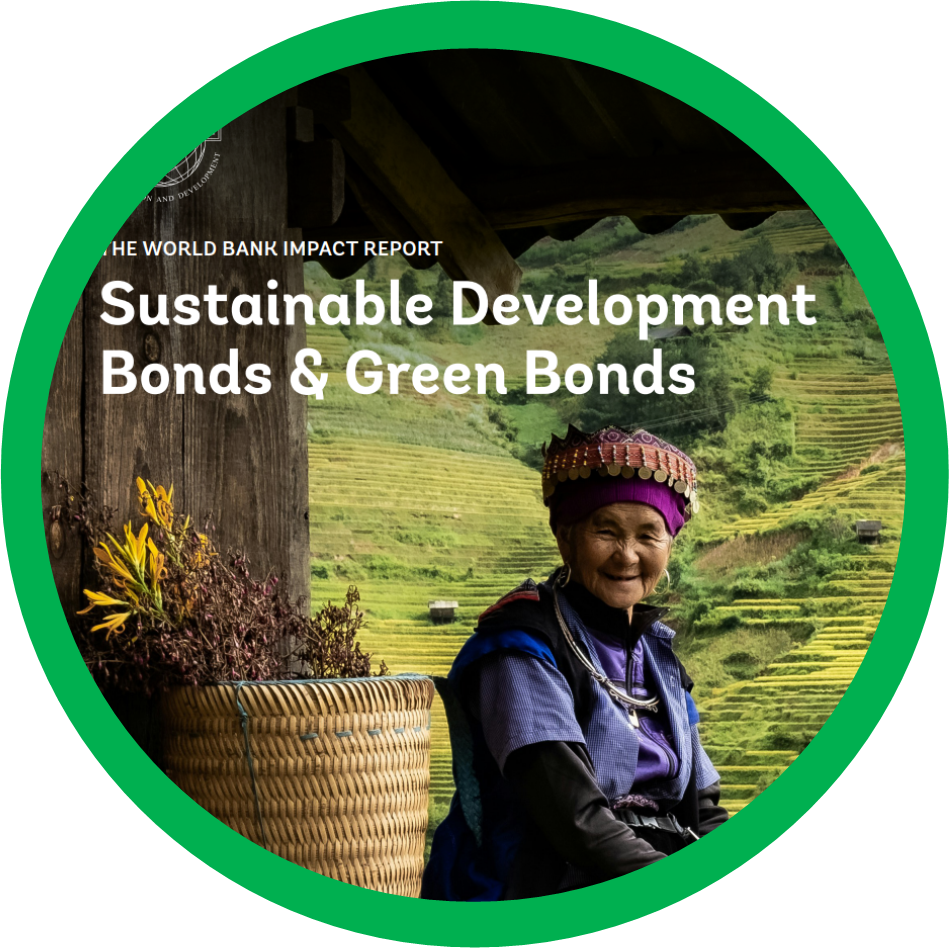Between fiscal 2021 and fiscal 2022, the World Bank’s global total emissions within the institution (scope 1 and 2) were reduced by 1,821 metric tons carbon dioxide equivalent, predominantly because our dependence on diesel generators decreased. However, scope 2 emissions remained the same even with partial return of staff to the office. This is a result of energy efficiency projects that were implemented during the pandemic-related shutdowns.
The World Bank measures indirect greenhouse gas emissions (Scope 3) globally from its business air travel, contractor-owned vehicles, and World Bank headquarters food-procurement emissions. Fiscal 2022 scope 3 carbon emissions from business air travel increased from fiscal 2021 (pandemic levels) but were only 24 percent of fiscal 2019 (pre-pandemic levels). Fiscal 2020 business air travel was also impacted by three and a half months of the COVID-19 pandemic, which is why fiscal 2019 is the baseline for business travel emissions.
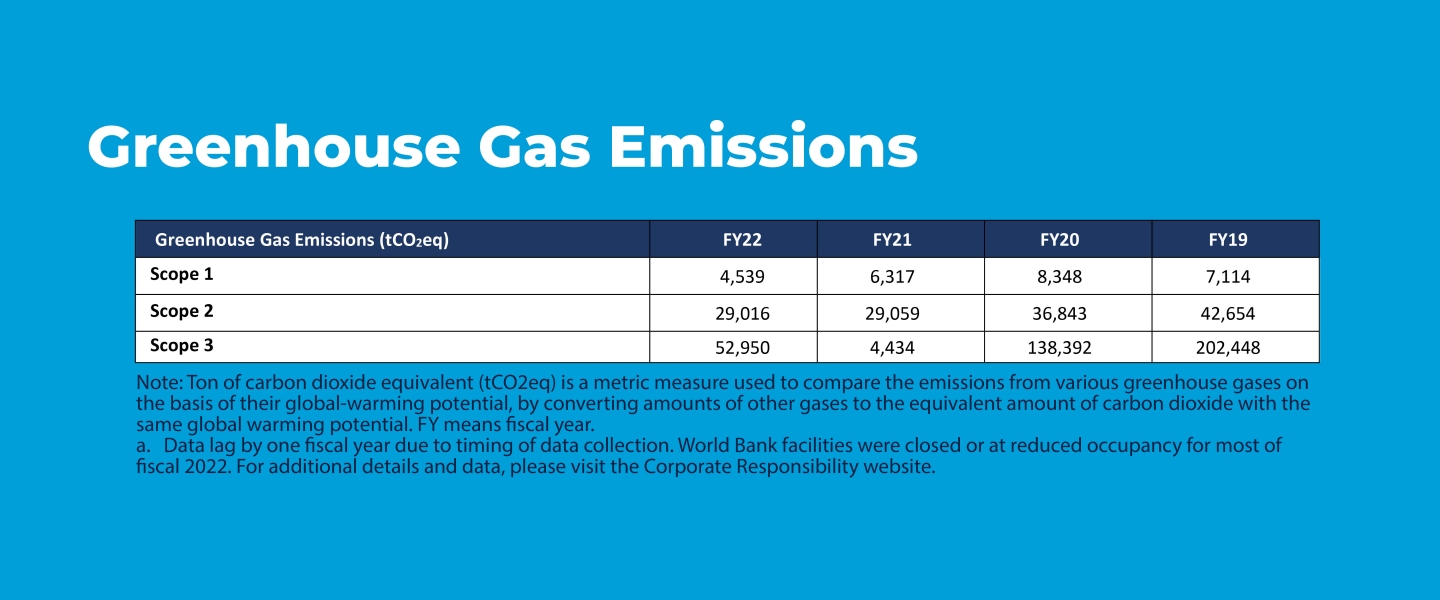
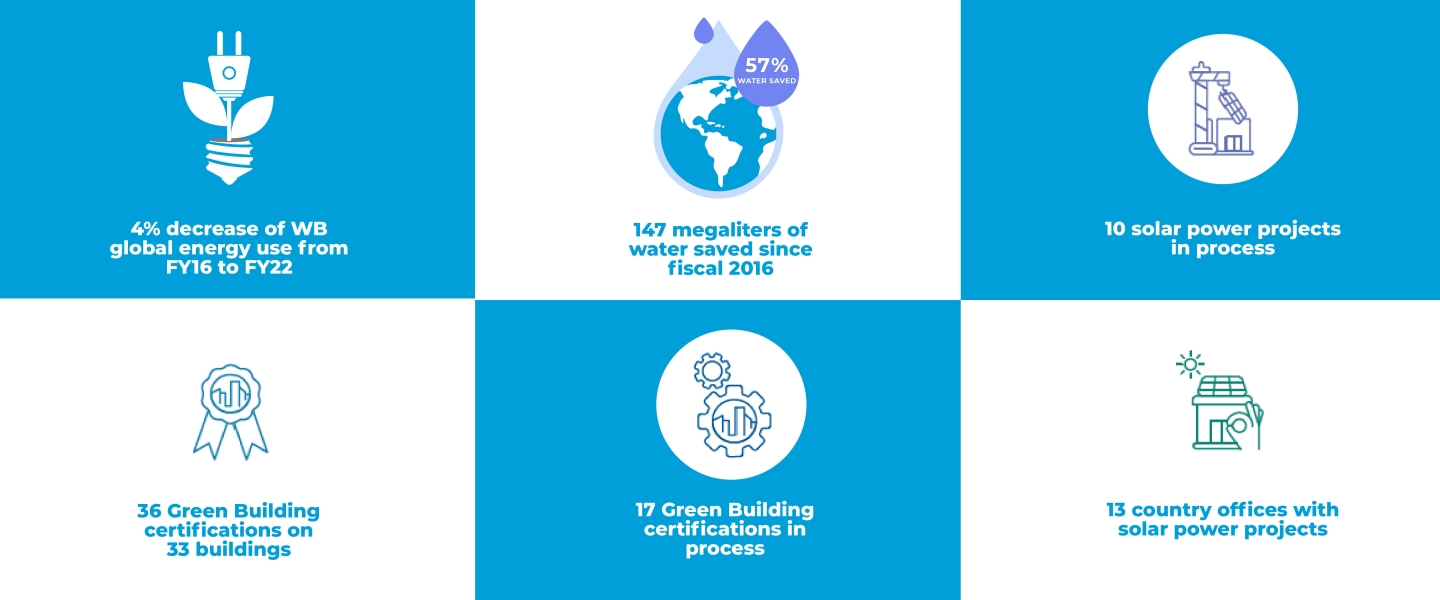
World Bank staff represent 181 nationalities and cover a wide range of fields, enabling the institution to offer clients a unique combination of global expertise and in-depth local knowledge.
Board of Governors gender ratio: We have 189 members, 64 of which are represented by women Governors and Alternate Governors.

ℹ️ The data and infographics on this page are based on the 2023 Sustainability Review. For the most recent information, please refer to our 2024 GRI Index.

